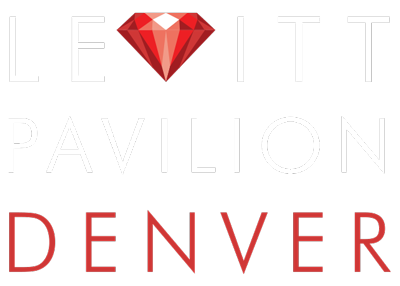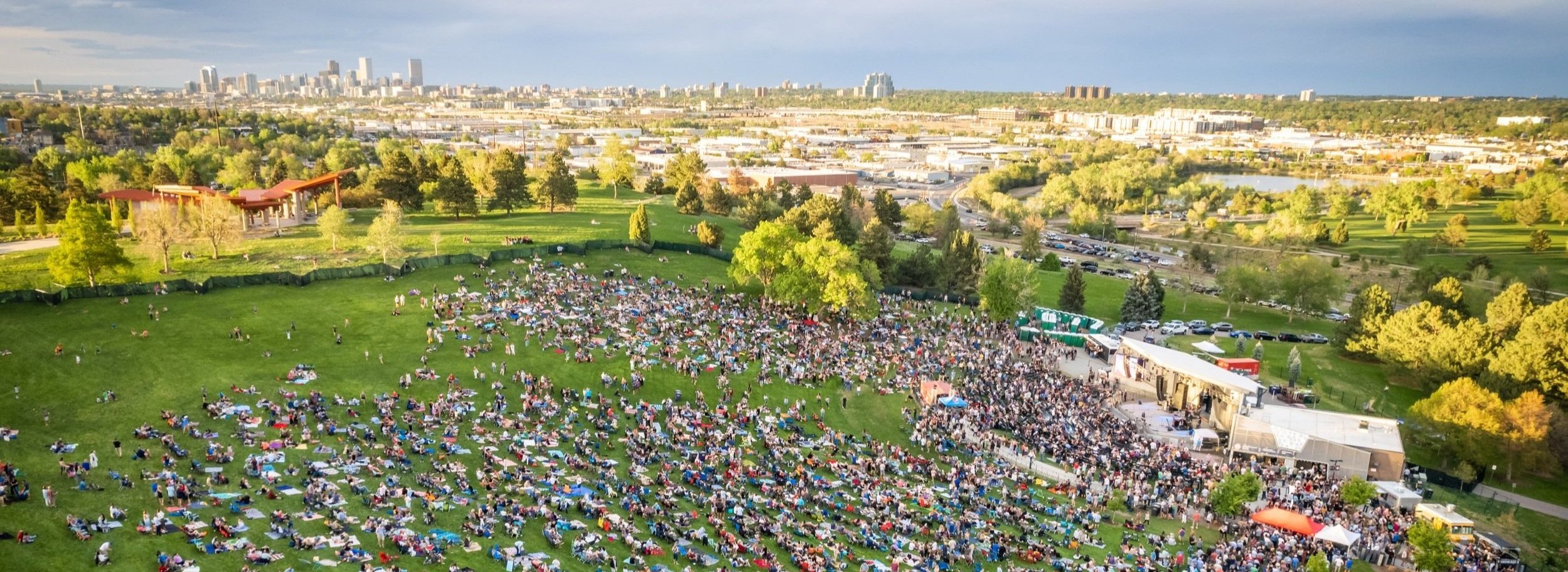photo by Alive Coverage
Building Community Through Music
The mission of Levitt Pavilion Denver is to build community through music, providing access to more than 50 free concerts and events each year in a welcoming, all-ages outdoor setting. Since opening in 2017, Levitt has become an inclusive gathering place and a destination venue in the region, operating in a unique partnership with the Levitt Foundation and City of Denver Parks and Recreation.
The Levitt Pavilion in Denver is part of a national network of changemakers and nonprofits dedicated to strengthening the social fabric of communities in America through free, live music in outdoor public spaces. Levitt music series are presented by a range of organizations, with Levitt Denver managed, programmed, and supported by the nonprofit Friends of Levitt Denver. Presenting high-caliber talent and a broad array of music genres and cultural programming, Levitt venues and concert sites are welcoming, inclusive destinations where people of all ages and backgrounds come together.
Through its concerts, community events and collaborative partnerships, Levitt Pavilion Denver creates connection across cultures and lived experiences, and works toward a more inclusive and equitable music industry. Levitt Pavilion believes in embracing the local, including the musicians, staff, artists and sponsors. Located in Ruby Hill Park in southwest Denver, Levitt Pavilion features:
50+ free concerts and community events annually with local, regional, national and international acts
Rich spectrum of music genres: R&B, country, rock, Latin, blues, jazz, reggae and more!
Relaxed, open lawn setting
Local food vendors
State-of-the-art sound and lighting
Accessible venue in an 80-acre public park within the city limits
All-ages environment
Outside of Levitt Pavilion Denver concert series, the 6,500-capacity venue is available for use by schools, arts organizations, outside promoters and other nonprofits.
Check out previous annual reports to see Levitt Pavilion Denver’s impact on our community!
In 2025, the Levitt network is presenting 650+ free concerts in over 50 towns and cities across the country, with audiences of nearly 1 million people. In addition to supporting free concerts, the Levitt Foundation is dedicated to advancing equitable music ecosystems through research and partnerships.
Find out more about the Levitt Foundation and the nation-wide network of Levitt venues: www.levitt.org
Our Commitment to Inclusion, Diversity, Equity and Access
Levitt Pavilion Denver’s commitment to inclusion, diversity, equity and access (IDEA) is grounded in the belief that these values are essential to building community through music. We recognize that IDEA values have not been prioritized in the music industry, and aim to create a more equitable and inclusive venue, team culture and sector. We are committed to transparency and accountability, and welcome insight from our community about how we can do better.
Our current priorities include:
More equitable hiring, onboarding and evaluation
Investing in emerging leaders, intentionally prioritizing BIPOC and LGBTQI+ individuals, through Bodies of Culture and workforce development programs
Continued learning and consulting in partnership with Celesté Martinez with Celestial Alegria and Leanne Smullen with Leader Evolution;
Regularly seeking audience, artist and staff feedback; and
Activating a staff IDEA committee within our team to lead this ongoing work.
We use the following working definitions in identifying priorities and goals:
Inclusion — ensuring people of diversity identities are welcomed and affirmed for the fullness of who they are and putting this into practice
Diversity — recognizing the value of the varying identity characteristics of the people. Identity characteristics are referred to as race, ethnicity, class, age, gender, sexual orientation, ability (physical and mental), religion/spirituality, citizenship status, etc.
Equity — creating access to opportunities, networks, resources and supports that empower everyone to succeed and centers those with identities of those who are not a part of the dominant culture
Accessibility — creating pathways and opportunities with thoughtfulness and intentional action with and for communities and individuals who consistently face seen and unseen barriers




